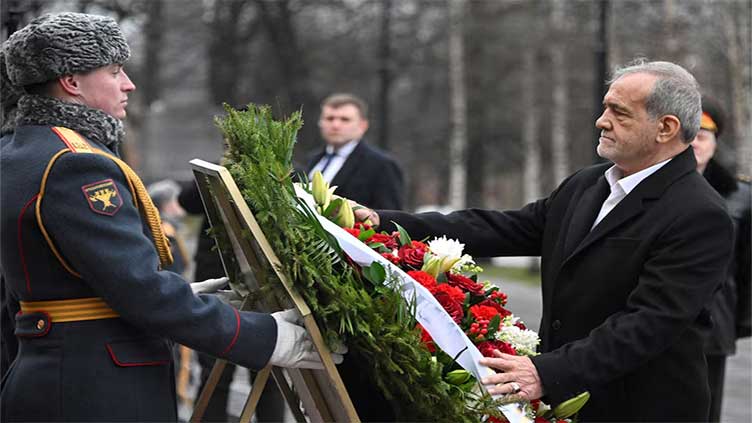Iranian president arrives in Moscow for treaty signing with Putin

World
Moscow and Tehran say their increasingly close ties are not directed against other countries
MOSCOW (Reuters) – Iranian President Masoud Pezeshkian arrived in Moscow on Friday for talks with Russian President Vladimir Putin and the signing of a strategic partnership treaty involving closer defence cooperation that is likely to worry the West.
Pezeshkian, on his first Kremlin visit since winning the presidency last July, will hold talks with Putin focusing on bilateral ties and international issues before signing the treaty.
Ahead of the talks, the Kremlin hailed its ever closer ties with Tehran.
"Iran is an important partner for us with which we are developing multifaceted co-operation," Kremlin spokesperson Dmitry Peskov told reporters.
Moscow has cultivated closer ties with Iran and other countries hostile towards the US, such as North Korea, since the start of the Ukraine war, and already has strategic pacts with Pyongyang and close ally Belarus, as well as a strategic partnership agreement with China.
The 20-year Russia-Iran agreement is not expected to include a mutual defence clause of the kind sealed with Minsk and Pyongyang, but is still likely to concern the West which sees both countries as malign influences on the world stage.
Moscow and Tehran say their increasingly close ties are not directed against other countries.
Russia has made extensive use of Iranian drones during the war in Ukraine and the United States accused Tehran in September of delivering close-range ballistic missiles to Russia for use against Ukraine. Tehran denies supplying drones or missiles.
The Kremlin has declined to confirm it has received Iranian missiles, but has acknowledged that its cooperation with Iran includes "the most sensitive areas".
Pezeshkian visit to Moscow also comes at a time when Iranian influence across the Middle East is in retreat after Islamist rebels seized power in Syria, expelling ally Bashar al-Assad, and after Iran-backed Hamas has been pounded by Israel in Gaza.
Israel has also inflicted serious damage on the Tehran-backed Hezbollah in Lebanon.
Russia too finds itself on the backfoot in Syria where it maintains two major military facilities crucial to its geopolitical and military influence in the Middle East and Africa but whose fate under Syria's new rulers is now uncertain.
Putin met Pezeshkian on the sidelines of a BRICS summit in the Russian city of Kazan in October and at a cultural forum in Turkmenistan the same month.
Pezeshkian, who is holding talks with Russian Prime Minister Mikhail Mishustin before meeting Putin, is accompanied to Moscow by his oil minister, and Western sanctions on the sector and the subject of how to circumvent them are likely to be discussed.


